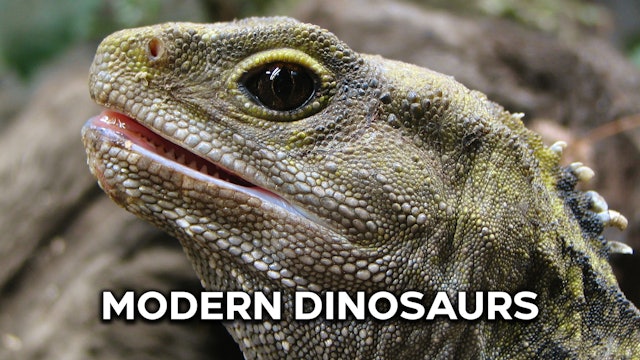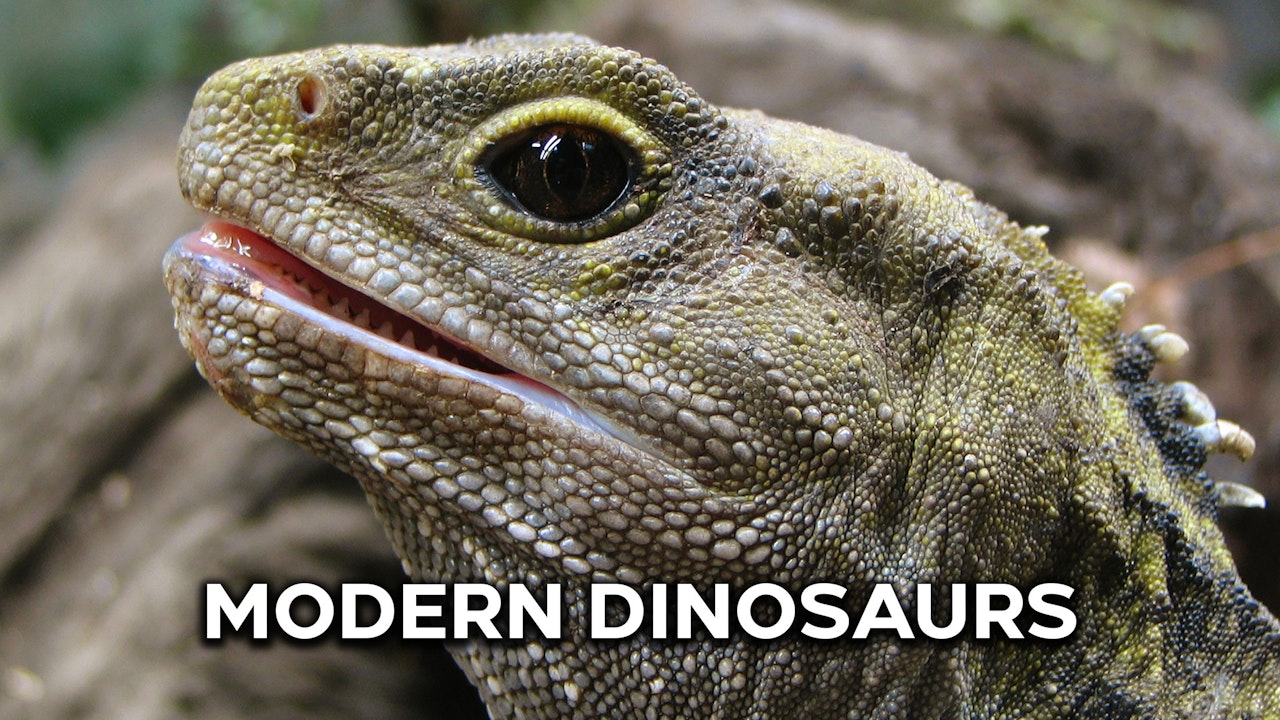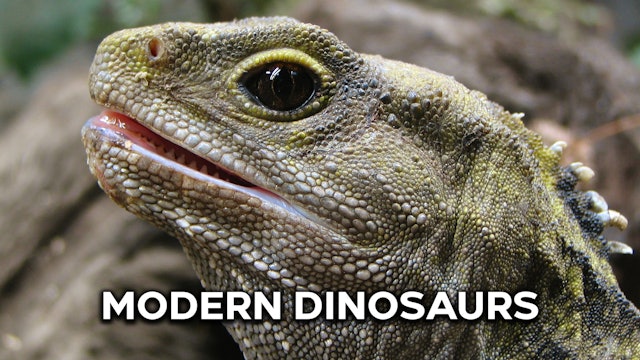-
Modern Dinosaurs - Trailer
How and why New Zealand became a storehouse for discontinued zoological species.
-
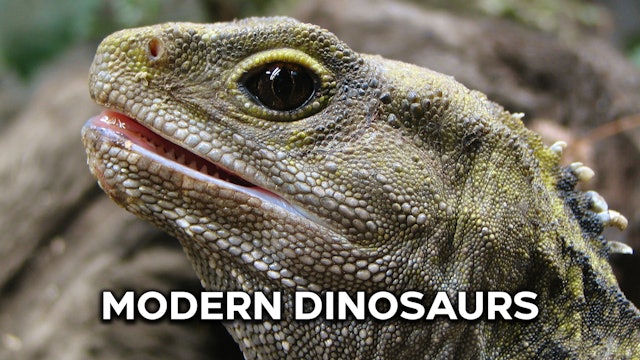 44:11Episode 1
44:11Episode 1The Tuatara - S1E1
Episode 1
Sixty five million years ago, a meteor hit the earth near Mexico killing nearly all life on the planet. Out of the ashes, one hardy reptile managed to survive in New Zealand: the Tuatara. Tuatara are some of the most bizarre reptiles on the planet.
-
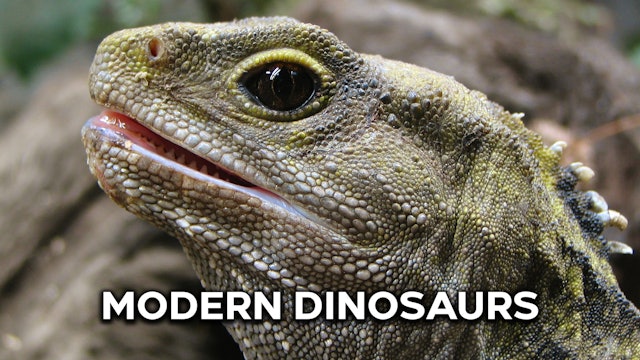 44:08Episode 2
44:08Episode 2The Kiwi - S1E2
Episode 2
The Kiwi is a bird that has thrown out the rulebook of bird biology. It doesn't fly, lives in the dark, and resembles a mammal more than anything bird-like. But how did a flightless bird find itself on islands in the middle of the ocean?
-
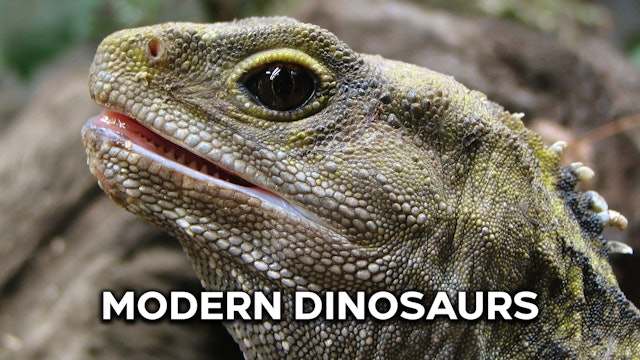 44:11Episode 3
44:11Episode 3Extreme Survivors - S1E3
Episode 3
New Zealand's dramatic landscape is no easy ride; the islands have been violently forged by volcanism and earthquakes to create some of the most unique environments on the planet. From predators that glow in the dark to the world's most intelligent parrot, wildlife must adapt or die.
-
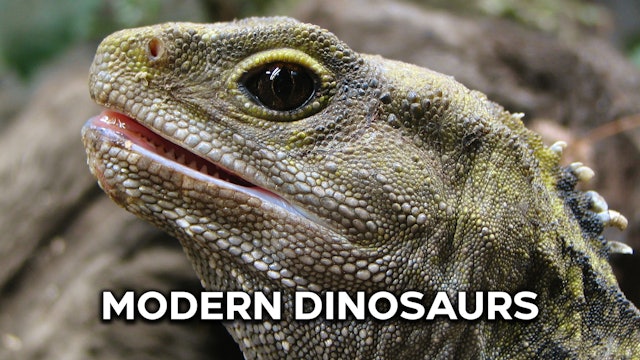 44:07Episode 5
44:07Episode 5Island Giants - S1E5
Episode 5
Many of New Zealand's native animals share an unusual trait - they're living giants. These islands are home to insects that grow as big as a rats, the largest birds to ever live, carnivorous snails as big as a fist, and a two metre long lake monster that slithers across beaches - the longfin eel.
-
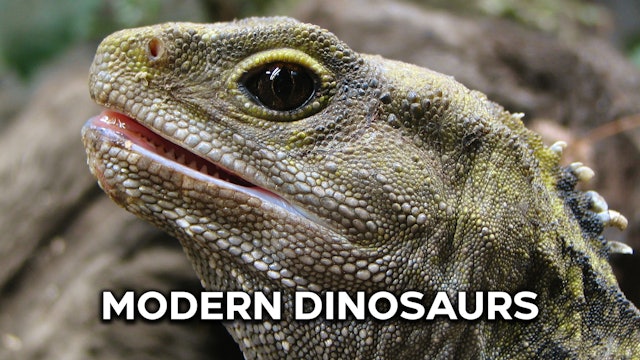 44:11Episode 6
44:11Episode 6Violent Seas - S1E6
Episode 6
We're still unlocking the mysteries of New Zealand's oceans. The creatures that live there are hardy; survivors who have met every challenge thrown at them. With the extinction of marine dinosaurs, an evolutionary door opened to allow sharks, whales, and other creatures to thrive.
-
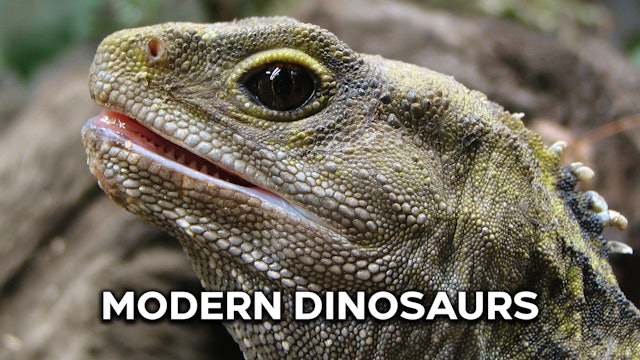 44:11Episode 4
44:11Episode 4A Very Strange Parrot - S1E4
Episode 4
Most parrots are colourful and fly in noisy flocks, but New Zealand's kakapo breaks all the rules. It's been called the strangest parrot in the world. With only 154 kakapo left, a hardy team of researchers is attempting to preserve this dying lineage in a race against the clock.

